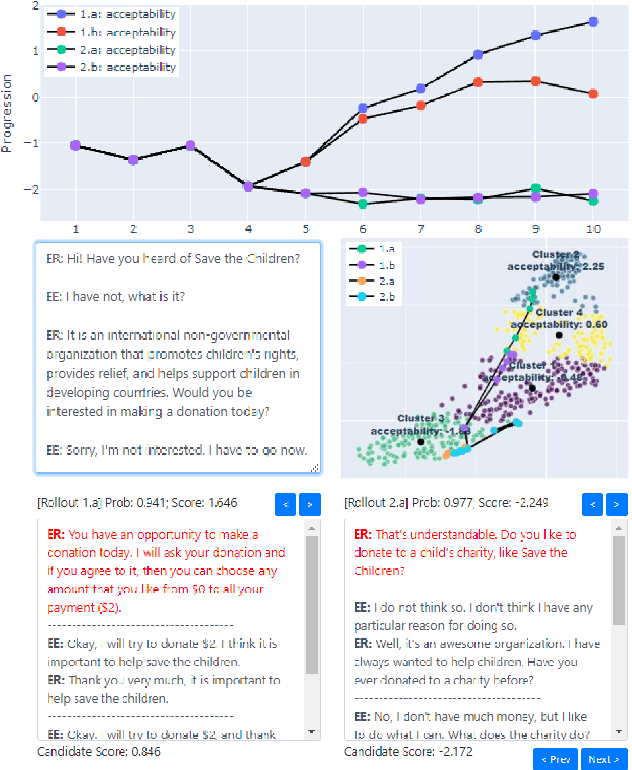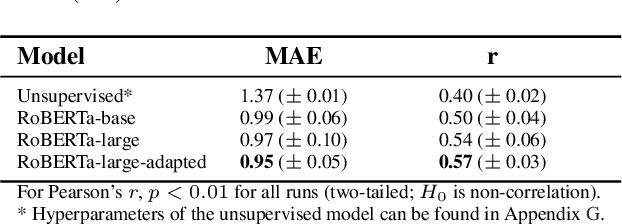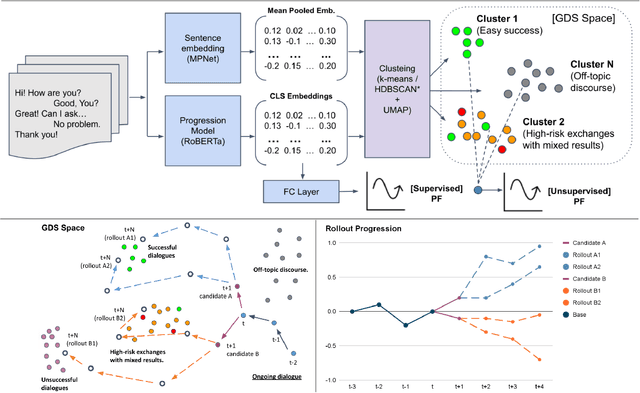Jonas Braasch
Towards a Progression-Aware Autonomous Dialogue Agent
May 10, 2022



Abstract:Recent advances in large-scale language modeling and generation have enabled the creation of dialogue agents that exhibit human-like responses in a wide range of conversational scenarios spanning a diverse set of tasks, from general chit-chat to focused goal-oriented discourse. While these agents excel at generating high-quality responses that are relevant to prior context, they suffer from a lack of awareness of the overall direction in which the conversation is headed, and the likelihood of task success inherent therein. Thus, we propose a framework in which dialogue agents can evaluate the progression of a conversation toward or away from desired outcomes, and use this signal to inform planning for subsequent responses. Our framework is composed of three key elements: (1) the notion of a "global" dialogue state (GDS) space, (2) a task-specific progression function (PF) computed in terms of a conversation's trajectory through this space, and (3) a planning mechanism based on dialogue rollouts by which an agent may use progression signals to select its next response.
 Add to Chrome
Add to Chrome Add to Firefox
Add to Firefox Add to Edge
Add to Edge